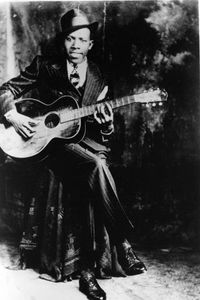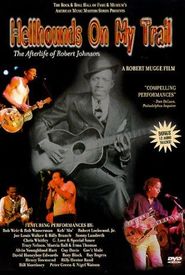Robert Leroy Johnson, a trailblazing American blues singer-songwriter and musician, etched an enduring legacy on the music landscape with his seminal recordings in 1936 and 1937, a testament to his remarkable artistry and innovative spirit.
These historic sessions, which would go on to shape the course of musical history, highlighted Johnson's extraordinary vocal prowess, his mastery of the guitar, and his extraordinary talent for crafting memorable songs that have captivated audiences for generations.
Throughout his brief but brilliant career, Johnson's unique blend of Delta blues, gospel, and folk influences, combined with his hauntingly emotive vocals and virtuosic guitar playing, has inspired a diverse array of musicians across genres, from rock and roll to folk, blues, and beyond.
As a result, Johnson's music has transcended time and style, continuing to influence and inspire new generations of artists, ensuring his enduring place as one of the most important and influential figures in the history of American music.
The enigmatic life and untimely demise of Robert Johnson, a blues musician whose remarkable contributions to the genre continue to captivate and intrigue music enthusiasts to this day, remain shrouded in an air of mystery, with numerous urban legends and tales surrounding his existence.
One of the most enduring and fascinating narratives surrounding Johnson's life is the notion that he entered into a Faustian bargain, a pact with the devil himself, at a crossroads in Mississippi, allegedly trading his very soul for unparalleled success and mastery in the music world.
This notion, while undoubtedly the subject of much speculation and debate, has become an integral part of Johnson's legend, and continues to captivate and fascinate audiences to this day, adding to the mystique and allure surrounding this enigmatic figure.
Despite the lack of concrete evidence to support this claim, the idea of Johnson's pact with the devil has become an integral part of his mythology, and continues to inspire and influence musicians and music enthusiasts alike, cementing his place as one of the most iconic and enduring figures in the history of the blues.



















